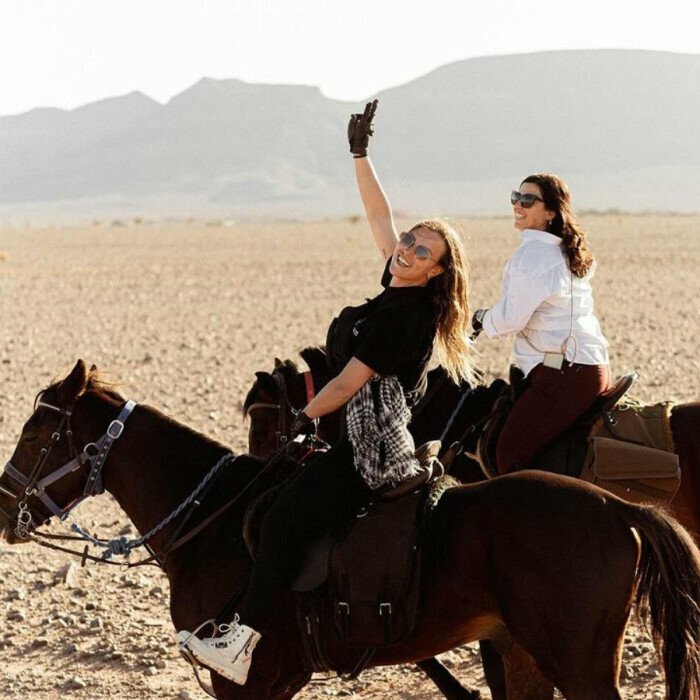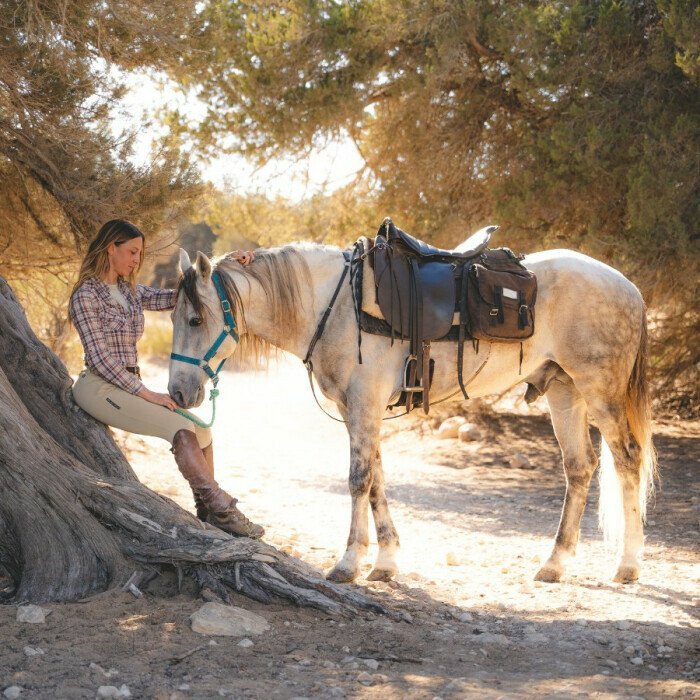Equestrian tourism isn't just a way of traveling: it's a way of life. It's an opportunity to see the world through new eyes, to feel the freedom that only nature can offer, and to experience an adventure you'll never forget.
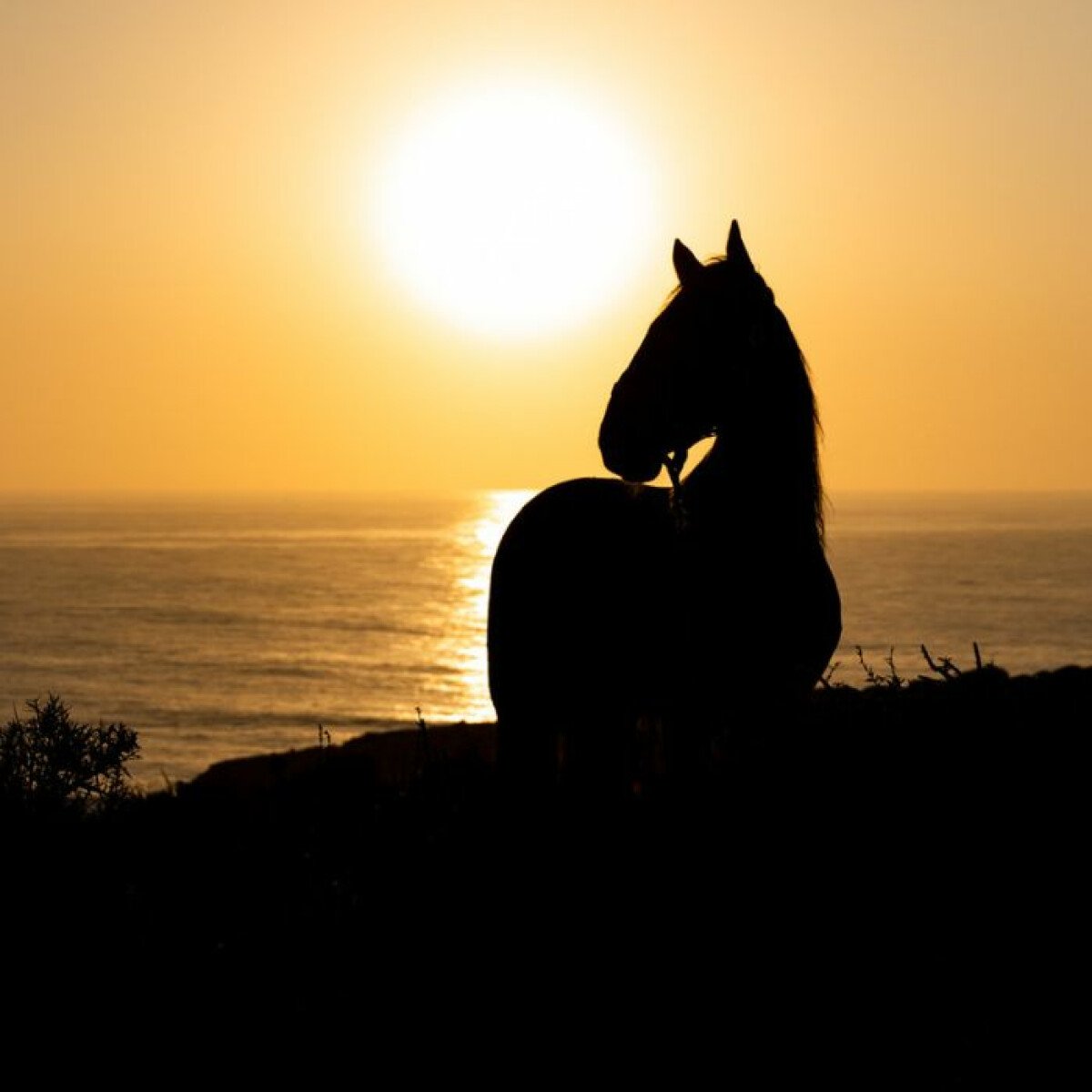
In a fast-paced world, the desire for authentic travel is growing stronger
We dream of slowing down, leaving behind the crowded maps to explore hidden trails, and trading background noise for the sound of wind and nature. And what if the key to this discovery were a wise, strong, and silent travel companion?
This is the heart of equestrian tourism: an experience that turns a simple vacation into a soulful adventure. And there’s no better place than Morocco—with its endless horizons and centuries-old culture—to experience this kind of magic.
What is equestrian tourism? A definition that goes beyond words
The term might sound technical, even specialized. But in reality, equestrian tourism is one of the most human and genuine ways to travel. Yes, it’s horseback tourism—but not in the recreational or sport-oriented sense. It’s a way of exploring natural and rural landscapes alongside a horse, with whom you build a relationship of mutual trust.
It’s about moving through ancient, silent trails, where the only sound is the rhythm of hooves on the ground, and each bend in the path reveals something new: a landscape, an encounter, an emotion.
It’s not just about “riding a horse.” It’s about traveling with the horse, in a partnership that changes your rhythm and your perspective. The horse is not a tool, but a companion. One that listens, senses, responds—and somehow, teaches.
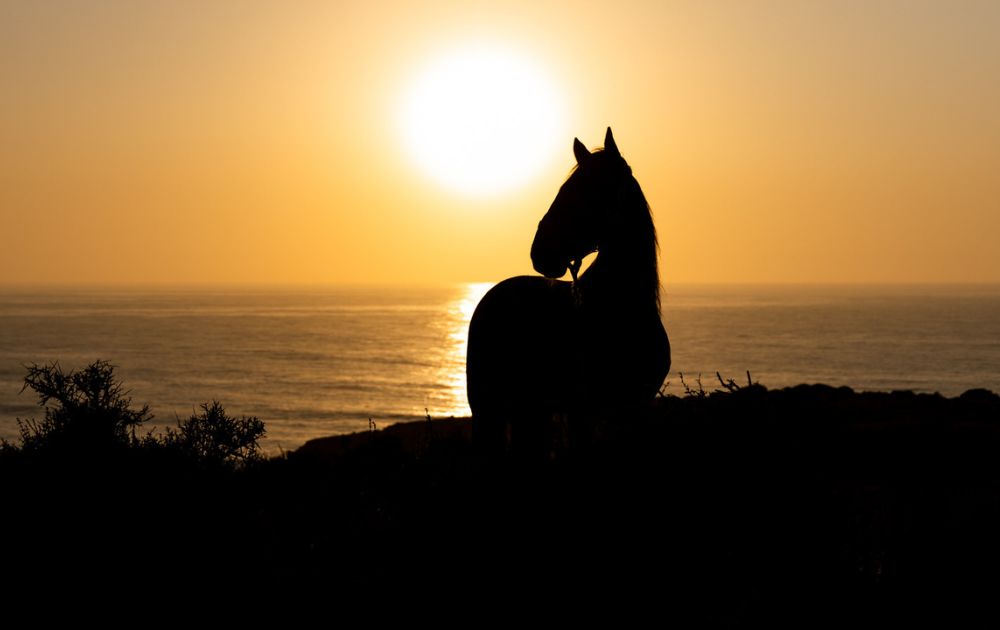
Traveling slowly: the essence of a transformative experience
At its core, equestrian tourism is a value-based choice. In a world driven by efficiency, choosing to slow down is almost a revolutionary act. It's about leaving the car, the plane, and fast transport behind, and trusting the ancestral rhythm of nature.
Each day on horseback becomes a story. There are no timetables, only sunsets to chase. No entry lines, only hidden trails. Slowness becomes an ally, helping you notice details you would otherwise miss: the flight of a bird over the dunes, the resinous scent of argan trees, the voices of shepherds carried by the wind.
You enter a deeper dimension, where the journey is not only external—but internal, too.
And equestrian tourism is not only emotional; it’s a conscious choice. In an age where we talk so much about sustainable tourism, this is a tangible way to live it. Minimal environmental impact, animals treated with respect, and support for local communities and their traditions.
Why choose equestrian tourism for your next adventure?
- Connection with nature: On horseback, you can reach untouched places—deserted beaches, ancient forest paths—experiencing the landscape in full immersion.
- Slow, sustainable tourism: Reduce your environmental footprint and rediscover the pleasure of a human-paced journey.
- Cultural authenticity: In Morocco, it means sharing mint tea in a Berber village or listening to desert tales around a bivouac fire.
- A unique sense of well-being: The bond with your horse reduces stress and strengthens trust in yourself.
Why Morocco is the land of equestrian travel
Anyone who has ridden even one day along Morocco’s Atlantic coast knows it: here, every landscape is a canvas, every light a poetic filter. Morocco seems made for horseback travel.
From endless beaches where the ocean meets the desert, to red hills stretching inland, each part of the journey evokes a sense of primal discovery.
In Essaouira, the wind guides you into dense forests of mimosa and eucalyptus, or toward Berber villages where time seems to stand still. The horse—silent and strong—is the key to a Morocco far from tourist routes. You connect with a living landscape that changes every hour, and a culture that opens generously to respectful travelers.
The Berber horse: soul and pride of this land
To ride in Morocco is to discover one of its most noble creatures: the Berber—or Arab-Berber—horse. It’s more than a breed; it’s a tradition. Bred for endurance and challenging terrain, they are strong, intelligent, and calm—shaped by centuries of coexistence with humans in harsh environments.
From the first ride, you feel it: riding a Berber is like riding a fragment of history. There’s wisdom in their eyes, precision in every step, and an energy expressed through patience, not force. Within a few hours, a deep bond forms—you trust, communicate with subtle gestures, and become a team.
And if I’ve never ridden before? Is it still for me?
Yes. Absolutely, yes! Equestrian tourism is accessible to everyone—as long as it’s organized with care and professionalism. At Ranch de Diabat, every ride is adapted to your level. Before departure, there’s always a moment to get to know your horse, receive guidance, and build confidence.
Beginners are matched with gentle horses and supported every step of the way. Daily rides are ideal to start—easy but scenic routes, perhaps at sunset, through dunes fading into the ocean. That first moment in the saddle soon becomes confidence, joy, and often a desire to return.
Start with an unforgettable experience. Our horseback rides on the beaches of Essaouira are the perfect way to begin.
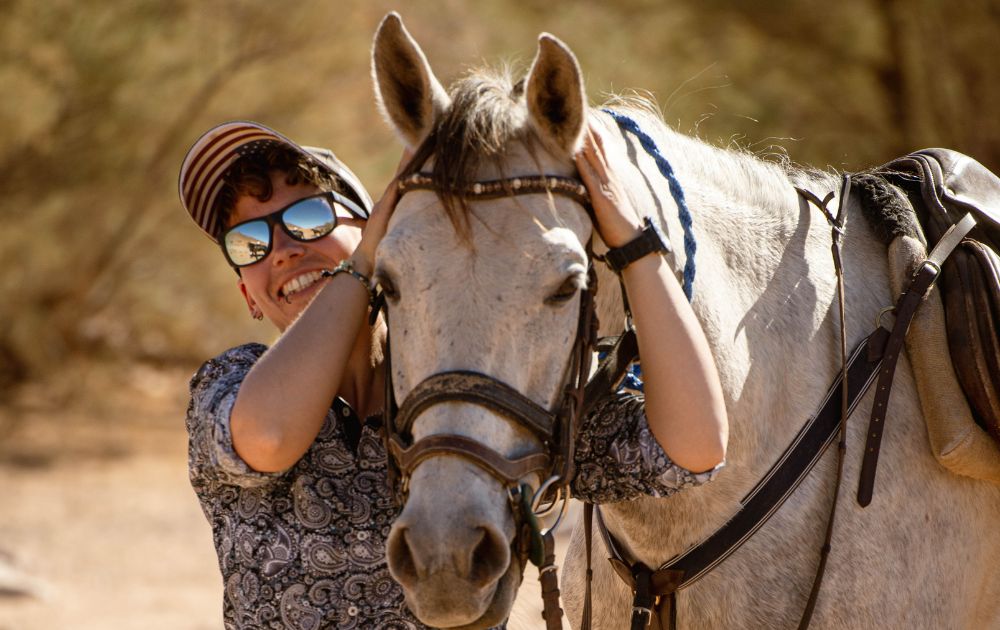
For experienced riders: epic adventures and endless silence
Morocco also offers challenges for those who want more. Multi-day treks—often five to seven days—are designed for experienced riders. You’ll cross remote regions, gallop for miles along the coast, and sleep under the stars in bivouacs, where there are no lights—only the sky.
Each day has its rhythm, each night tells a new story. It’s on these journeys that the deepest bond with your horse takes shape. You ride, eat, and rest together. You learn their rhythm and reactions—and discover that we, too, can listen in silence.
Push your limits and live an adventure you’ll never forget. Explore our 5-to-7-day horseback treks.
Preparing for the adventure: what to know before you go
You don’t need fancy equipment. Just long pants, closed shoes, a sun hat, a light backpack, and a helmet. Safety instructions are always provided on site.
Children are welcome, guided by experienced staff and gentle horses. Prices vary depending on duration and experience type—whether it’s a one-hour ride, a full-day excursion, or a multi-day trek.
The journey begins where the road ends
Some journeys are booked. Others are dreamed of. Equestrian tourism is both. It offers a chance to experience something different, meaningful, and authentic—and may even change how we see the world.
Riding in the silence of the dunes, drinking tea with a Berber elder in a remote village, feeling your horse breathe beneath you as the sun sets on the horizon—these are moments you won’t forget. Because they leave a mark—not on the land, but deep within.
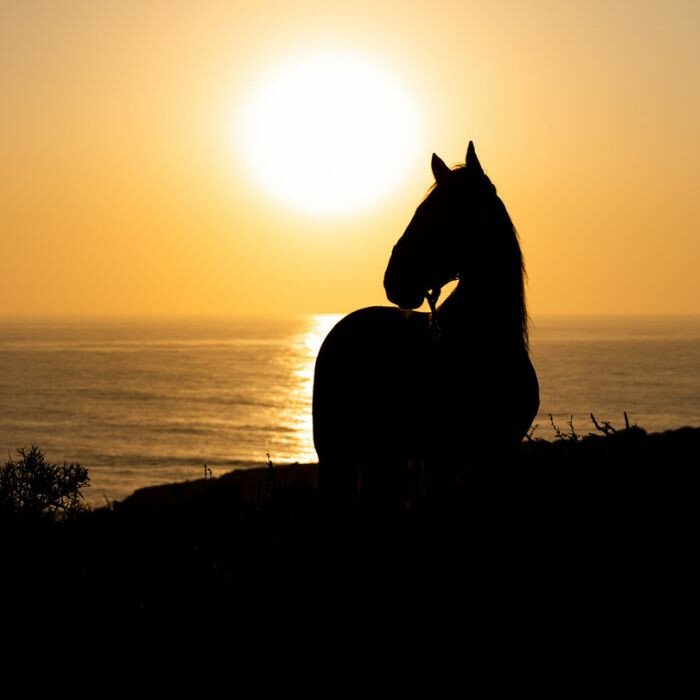
-thumb-md-thumb-md.jpg)
